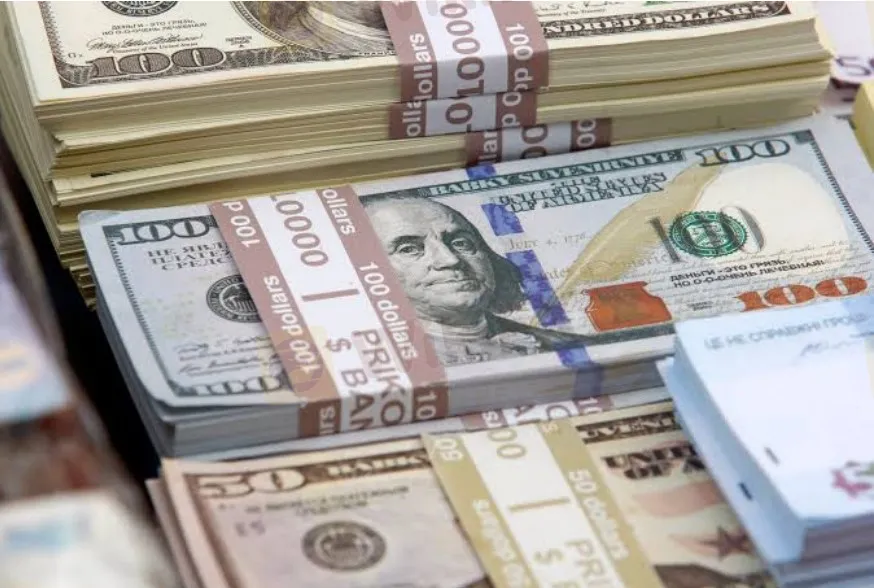Abstract:The weekend saw a new low in Nigeria's foreign currency (forex) reserves of $35.39 billion due to declining inflows of forex management system.

The weekend saw a new low in Nigeria's foreign currency (forex) reserves of $35.39 billion due to declining inflows of forex management system.
The country's FX reserves fell by $111.10 million to $35.39 billion, marking the 11th week in a row that they have decreased.
At the official Investors & Exporters (I & E) market, the naira also lost 0.4% of its value, falling to N463.25 per dollar. The Central Bank of Nigeria (CBN) regulated official window's overall turnover fell by 45% to $305.58 million, with trades completed in the N460 to N479.98 per dollar range.
In nearly three months of a rapid slide, Nigeria's FX reserves had lost more than $1.82 billion. According to the CBN's official report, they were down to $35.39 billion at the weekend from $37.211 billion on January 16, 2023.
Nigeria's FX reserves increased from $37.08 billion at the end of 2022 to $37.211 billion on January 16, 2023. Since then, it has been declining, reaching lower levels every week for the past 10 weeks.
Analysts at Cordros Capital projected that the forex issue “would remain over the short-to-medium term” because there is no indication that the supply of foreign exchange has improved since the pre-CO time. Scales for VID-19.
In addition, foreign portfolio investors (FPIs), who have history in the Investors & Exporters Window, liquidity levels in the medium to long term due to the tepid accretion to reserves due to low crude oil production and elevated premium motor spirit (PMS) under-recovery costs, according to a statement made by Cordros Capital over the weekend.
The ongoing decline in capital importation has been attributed to the lackluster interest shown by foreign investors as a result of “an unclear FX framework, an uninspiring macro narrative, elevated global interest rates, and heightened global uncertainties.”
According to experts at Afrinvest (west Africa), Nigeria's capital importation is still below its pre-Covid level of $24 billion. This is “primarily owing to the investors' reluctance to existing FX restrictions.”
Afrinvest said that the importance of capital controls in managing the continuing forex crisis has a negative impact on fund repatriation from Nigeria and deters new investments from foreign investors.
Analysts claim that the availability of numerous fx windows obscures the administration of foreign exchange, benefits the government sector at the expense of the sizeable private economy, and increases the premium of rates on the parallel market over those on the official market.
Experts pointed out, however, that the country's sluggish capital flow was inextricably related to the broader pressure on flows to frontier and emerging markets brought on by the normalization of monetary policy in advanced countries.
The Institute of International Finance (IIF) data analysis revealed that the net average monthly offshore portfolio movement to emerging economies in 2022 totaled $3.1 billion, compared to $23.4 billion in 2021, after omitting data for August and September 2022.
In addition, we believe that one of the issues impeding the performance of capital inflows, particularly foreign direct investments, is the poor business climate caused by inadequate infrastructure, unwelcoming laws, instability, and rising poverty (FDIs).
Therefore, measures that can help reverse ugly trends include the introduction of policies to support diaspora remittances, enhance crude oil production, and diversify forex earnings, which would allow the CBN to reduce its reliance on capital controls to manage forex reserves and, in turn, the free flow of capital would reduce the apathy of foreign investors to the domestic market.
Furthermore, the problem of several forex windows should be addressed, and the business environment should be improved by making required infrastructure investments and changes in important areas of the economy.
Together with the aforementioned elements, the elections will exacerbate capital investment difficulties in the first quarter of 2023. Overall, we have reduced flow projection for 2023 from $7.0 billion to $6.2 billion. The fall partially reflects the price of prolonged policy tightening and postponed fiscal normalization until the first half of 2023, according to Afrinvest.
The National Bureau of Statistics (NBS) last week released the most recent data, as capital importation into Nigeria decreased by 51.5% to $1.06 billion in the fourth quarter of 2022 from $2.19 billion in the similar quarter of 2021 and $1.16 billion in the third quarter.
A widespread reduction in all investment categories, including portfolio investments, which fell by 55.6% to $285.26 million, foreign direct investments, which fell by 76.5% to $84.23 million, and other investments, which fell by 41.7% to $691.23 million.
The amount of capital imported annually fell for the third year in a row, falling by 20.5% to $5.33 billion in 2022 from $6.70 billion in 2021, the lowest amount since the country combined $5.12 billion in 2016.










